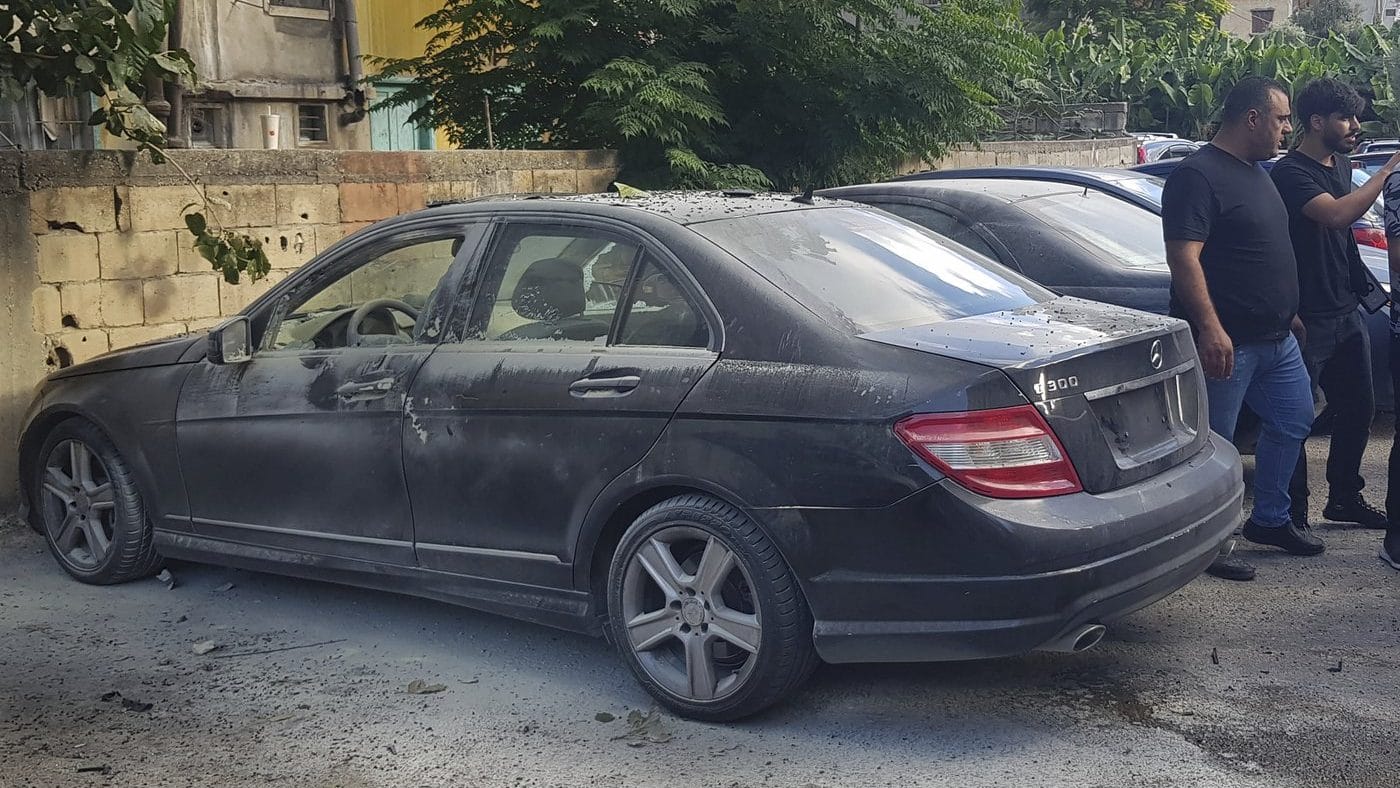A day after the pager incident, another wave of device explosions strikes Lebanon, leaving at least nine dead
Lebanon's official news agency also reported explosions involving solar energy systems in homes in Beirut and southern Lebanon, injuring at least one girl.

Explosions rocked Beirut and other areas of Lebanon in what appears to be a second wave of blasts targeting electronic devices, Hezbollah officials and state media reported on Wednesday.
Following the detonation of hundreds of pagers the previous day, this wave saw walkie-talkies and even solar equipment being targeted. The Health Ministry confirmed that at least nine people were killed and 300 were injured.
Multiple blasts were heard during a funeral in Beirut for three Hezbollah members and a child who had been killed by exploding pagers a day earlier, according to Associated Press journalists at the scene.
In Sidon, a southern coastal city, an AP photographer saw damage to a car and a mobile phone shop after devices exploded inside.
A Hezbollah official told the AP that walkie-talkies used by the group had exploded, but they spoke on condition of anonymity as they were not authorized to discuss the matter publicly.
Lebanon's official news agency also reported explosions involving solar energy systems in homes in Beirut and southern Lebanon, injuring at least one girl.
These new explosions followed the chaotic events of Tuesday, when pager bombings, which seemed to be part of a complex Israeli operation targeting Hezbollah members, caused widespread casualties.
At least 12 people, including two children, were killed, and around 2,800 were wounded as the pagers detonated in homes, cars, grocery stores, and cafes.
Initial reports suggested that small amounts of explosives had been hidden in pagers distributed to Hezbollah members, detonated remotely.
The subsequent explosions of other devices raised concerns about deeper infiltration of booby-trapped electronics into Lebanon's supply chain.
These attacks, which occurred in crowded public spaces with no certainty about who was carrying the devices, have heightened fears of further escalation.
Israel has not commented on the attacks, but the incidents have fueled anxiety over the possibility of the simmering conflict between Israel and Hezbollah spiraling into a full-scale war.
On Wednesday, U.S. Secretary of State Antony Blinken said that Washington was still evaluating how these events might impact efforts to broker a ceasefire in the ongoing Israel-Hamas war in Gaza.
As a precaution, Israel moved more troops to its border with Lebanon, according to an anonymous source familiar with the situation.
Hezbollah and Israeli forces have been exchanging fire regularly since October 8, a day after a Hamas-led assault in southern Israel sparked the current conflict.
The violence has led to hundreds of deaths in Lebanon and dozens in Israel, displacing tens of thousands on both sides.
Israeli leaders have warned that operations against Hezbollah could intensify if the cross-border exchanges are not stopped, allowing civilians to return to homes near the border.
Further details of the operation behind the attacks emerged, with an American official confirming that Israel had briefed the U.S. about the explosive-laden pagers.
The AR-924 pagers used in the attack were manufactured by BAC Consulting KFT, a company based in Budapest, Hungary, according to a statement from Gold Apollo, a Taiwanese firm that had licensed its brand to BAC for product sales.
Gold Apollo stated that while BAC was authorized to use its trademark, the design and manufacturing of the pagers were entirely BAC's responsibility.
BAC Consulting KFT, registered as a limited liability company in May 2022, has seen significant revenue over the past two years. The company's headquarters are located in a residential area of Budapest.
An Associated Press reporter attempted to contact Cristiana Rosaria Bársony-Arcidiacono, who is registered as BAC’s parent company owner, but no connection has yet been made between her or BAC and the pager explosions.
The explosive devices began going off on Tuesday afternoon, with pagers heating up and then detonating, causing panic in public spaces. Most victims appeared to be Hezbollah members or individuals linked to the group, but it was unclear if civilians unaffiliated with Hezbollah were also affected.
The Health Ministry reported that healthcare workers and two children were among the dead, including 9-year-old Fatima Abdullah in the Bekaa Valley village of Nadi Sheet.
On Wednesday, Hezbollah vowed to continue its strikes against Israel, describing it as part of its support for Hamas and Palestinians in Gaza.
The group also promised retribution for Tuesday’s attacks, calling for accountability.
Hospitals in Beirut remained busy on Wednesday as relatives of the wounded waited for updates. Lebanon’s Health Minister, Firas Abiad, said many of the injured had sustained severe eye injuries, with others requiring amputations.
Medical support from neighboring countries, including Turkey, Iraq, Iran, Syria, and Egypt, was offered to help treat patients. An Iraqi military plane delivered 15 tons of medical supplies to Beirut on Wednesday.
Experts suggest that the explosive materials were hidden inside the pagers before they were distributed. The AR-924 pager, marketed as “rugged,” was equipped with a rechargeable lithium battery and advertised with an 85-day battery life, which is crucial in Lebanon’s electricity-starved environment.
Pagers also operate on different wireless networks than mobile phones, making them less susceptible to Israeli electronic surveillance — a key reason for Hezbollah’s use of them.
Taiwan’s Ministry of Economic Affairs revealed that Gold Apollo exported 260,000 pagers between 2022 and 2024, including 40,000 in 2023, but there were no records of direct exports to Lebanon.





